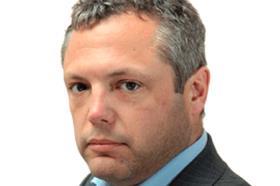Former footballer turned pundit Gary Neville called it right. Why would a reputation-conscious sheikhdom for which money is no object score such a spectacular own goal?

And so it was that Manchester City, owned by Abu Dhabi, became the first ‘big six’ club to bale on football’s universally unpopular European Super League plan. I wonder if City’s general counsel Simon Cliff, who once showed me round the club’s spectacular Eastlands campus, is secretly relieved. Cliff told me that his first love was Aston Villa – who were not invited to the super-league party – so maybe so.
As a Leeds fan handed the vanishingly rare opportunity of occupying the moral high ground, I am glad the project was stillborn. But the journalist in me would have relished the orgy of lucrative litigation and febrile regulatory activity that was hoving into view last week. As the Financial Times pointed out, collaboration of a consortium of businesses to create a ‘closed shop’ of the kind envisaged would certainly merit antitrust scrutiny. Yet sanctions on the players affected, such as banning them from playing for their national teams, would look like a restraint of trade.
Pass the popcorn.
And then, of course, there is our PM, who had never previously appeared greatly exercised by the business activities of foreign oligarchs. His threat of a ‘legislative bomb’ to halt the project in its tracks certainly demonstrated this government’s capricious attitude to competition and free enterprise. Less than a month ago he told us ‘greed’ accounted for the UK’s Covid vaccine success. Yet the same ignoble but human impulse is not to be countenanced in football. Presumably because, to paraphrase Bill Shankly, football is even more important than life and death.
What the affair has certainly done is burnish the appeal of legal careers in competition and sports law, as practitioners in these fields were rarely off the airwaves last week. So it is serendipitous that this week’s Gazette probes the efficacy of the UK’s antitrust regime in the aftermath of Brexit, with a particular focus on the Competition Appeal Tribunal. World-leading or ripe for reform? Andrew Tyrie, former chair of the Competition and Markets Authority, has led calls for change – but there is not much sign of it yet.































No comments yet